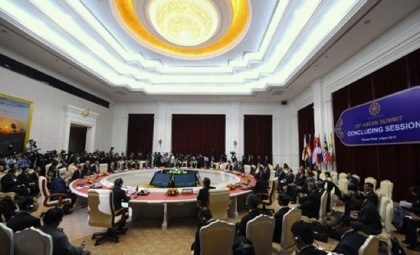SUMMARY
This is AI generated summarization, which may have errors. For context, always refer to the full article.

MANILA, Philippines – It’s one of the promises of the leaders in Southeast Asia this year – to come up with a human rights declaration for the region’s 600 million people.
Advocates of gender rights have to ask, however: what did the authorities mean when they spoke of human rights? Were they referring only to the rights of the heterosexual citizens of the region, or did they also consider the rights of the members of the lesbian, gay and transgender community across the 10-member states of the Association of Southeast Asian Nations?
This question surfaced as the draft of the Asean human rights declaration (copies of which were obtained by the media in February) did not contain any clause ensuring that the rights of everybody – regardless of sexual orientation and gender identity – would be upheld.
The ASEAN Lesbian, Gay, Bisexual, Transgender, Intersex and Queer (LGBTIQ) People’s Caucus pointed out that Article 2 of the draft only said: “All human beings, without distinction as to race, color, sex, language, religion, nationality, ethnic origin, family or social status, or personal convictions have the right to live in dignity and to enjoy the fruits of development and should, on their part, contribute to and participate in it.”
Discriminatory
The LGBTIQ People’s Caucus demanded a clear provision on gender identity (self-conception as being male or female) and sexual orientation (attraction to the opposite or same sex, or both) in the human rights declaration as Asean leaders met in Phnom Penh, Cambodia for a 2-day summit on April 3 and 4.
“Across the Asean region, LGBTIQ persons are either treated as second class citizens, criminals, are seen as deviants, and in some cases are not even recognized as human beings. We are made to lead dual lives and be ashamed of ourselves for who we are,” the group – which was represented by 22 civil society organizations from different Southeast Asian countries – declared on April 4.
Four out of Asean’s 10-member states – Brunei, Myanmar, Malaysia and Singapore – consider homosexuality a crime. On the other hand, in Indonesia, the province of Aceh introduced a bill punishing homosexuals through stoning. In 2009, it provided for 100 lashes. While it was not passed into law because the governor refused to sign it, Aceh remains hostile to members of the LGBTIQ community.
In the Philippines, while there are no laws criminalizing homosexuality, cases of discrimination remain evident. In 2009, the Commission on Elections disqualified the LGBT rights organization from seeking a seat in Congress as a partylist group on grounds of immorality. The group was only able to get the go-signal to participate in the 2010 elections following a temporary restraining order issued by the Supreme Court.
The LGBTIQ People’s caucus also highlighted the alleged lack of action of Thai authorities on the killings of 15 lesbians since 2006 – the victims were burned or stabbed. The Thai police reportedly dismissed the crimes as consequences of conflicts in romantic relationships, as some of the suspects were men who were reportedly slighted by females who chose to be with women instead.
This is alarming, considering that Thailand is one of Asean 10-member states which have expressed support for the inclusion of “gender identity” in the Asean human rights declaration. According to a report by Mizzima news, Thailand also wanted to add “sexual orientation” in the document, but Brunei and Malaysia disagreed.
Prescriptions
The human rights declaration, which while may not be legally binding, marks an important step in the development of other regional tools in the promotion of human rights. It was one of the more concrete actions by the regional group after the Asean Intergovernmental Commission on Human Rights was launched in 2009.
Various LGBT rights groups had hoped that the declaration would be inclusive, because the LGBTIQ People’s Caucus had raised the issue of violence and discrimination against members of their community during the Asean Civil Society Conference and Asean People’s Forum in 2011.
The LGBTIQ People’s Caucus said that besides expressly stating in the Asean human rights declaration that the rights of all citizens should be respected regardless of their gender identity and sexual orientation, the following should also be done by Asean’s member-states (including Laos and Vietnam):
- Repeal laws that directly and indirectly criminalize people because of their gender identity and sexual orientation
- Establish national level mechanisms and review existing regional human rights instruments such as the AICHR and the ASEAN Commission for the Promotion and Protection of the Rights of Women and Children to include the promotion and protection of the equal rights of all people, in consultation with the LGBTIQ community
- Stop categorizing members of the LGBTIQ community as an “abnormality” and instead promote their psychological well-being in accordance with World Health Organization standards, and ensure equal access to health and social services
“Even with all the hurdles and challenges faced by the LGBTIQ movement in Asia, our numbers and strength has been steadily growing. We have come at the stage in our struggle for equality and respect that we will never accept discrimination, abuse and violence a part of our existence by the denial of our rights and our humanity,” the group said. – Rappler.com
Add a comment
How does this make you feel?
There are no comments yet. Add your comment to start the conversation.